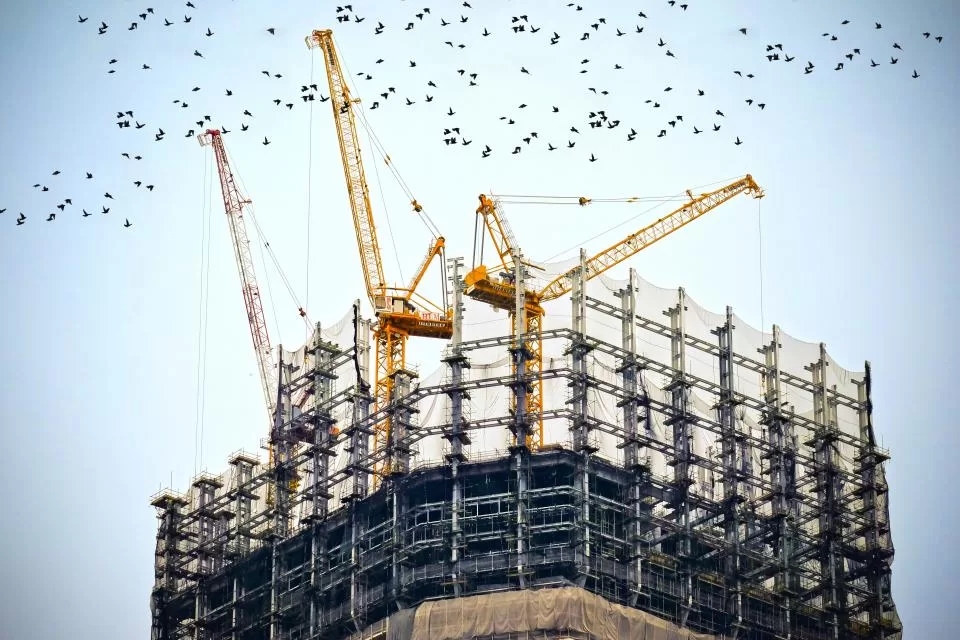Navigating the intricate maze of commercial law in Australia is no small feat, especially when it comes to the building and construction sector. Owing to the magnitude of the legal landscape in this industry calls for expertise, precision, and, importantly, the right legal guidance. On the whole, common building and construction legal pitfalls can lead to an avalanche of legal troubles that could jeopardize your entire project. This article aims to serve as a lifeline for corporations, entrepreneurs, financial institutions, and industry groups who wish to mitigate such common building and construction legal pitfalls by making an informed decision in hiring a specialized building and construction lawyer.
 “Building Construction“
“Building Construction“
The Importance of Legal Expertise in the Building and Construction Sector
Let’s not sugarcoat it; building and construction law in Australia is complex. From adhering to the Building Code of Australia to understanding specific state-based environmental and zoning regulations, there is a myriad of hoops to jump through. Common building and construction legal pitfalls can be especially costly. As a result, businesses who underestimate the significance of specialized legal advice often pay a hefty price.
For instance, construction companies in New South Wales face hefty penalties for failing to comply with environmental laws—a lapse attributed to common building and construction legal pitfalls, largely due to subpar legal advice. The bottom line? Cutting corners on legal expertise is a risk you can’t afford to take.
Common Mistakes to Avoid: Navigating Common Building and Construction Legal Pitfalls
Mistake 1: Prioritizing Cost Over Expertise
Money matters, but when it comes to legal assistance, you get what you pay for. For that reason, trying to save on initial costs by hiring a less expensive, inexperienced lawyer can backfire, landing you in deeper financial turmoil in the long run—often causing you to stumble into common building and construction legal pitfalls.
Mistake 2: Overlooking Specialization
In reality, a commercial lawyer is not a one-size-fits-all solution. On the contrary, common building and construction legal pitfalls often demand specialized knowledge, from understanding construction contracts to navigating disputes related to delays or defects.
Mistake 3: Ignoring Local Jurisdictional Knowledge
Australia’s federal structure means that building and construction regulations can differ markedly between states and territories. Ignorance of these nuances can be one of the common building and construction legal pitfalls that spell disaster for your project.
Mistake 4: Failing to Check Past Client Reviews and References
In essence, a lawyer’s reputation can speak volumes. For this reason, failing to do your homework on past client experiences can leave you with an attorney who doesn’t meet your needs or, worse, one who makes you susceptible to common building and construction legal pitfalls.
Mistake 5: Not Discussing Communication and Accessibility
Poor communication can lead to missed opportunities and unwanted legal outcomes, qualifying as one of the common building and construction legal pitfalls. If your lawyer is not accessible or fails to communicate complex issues clearly, it’s a glaring red flag.
How to Safeguard Against Common Building and Construction Legal Pitfalls: A Benefit-Driven Approach
The Benefits of Skilled Legal Representation to Avoid Common Pitfalls
Cost-Efficiency in the Long Run
While hiring an expert lawyer might seem like a significant initial outlay, the financial risks of landing in a legal snare are often far greater. An adept lawyer can help you sidestep common building and construction legal pitfalls, saving you hefty fines, lost time, and damaged reputation.
Timely Project Completion
In an industry where time is often equated with money, delays due to legal entanglements can be catastrophic. An experienced construction lawyer can help you navigate planning permissions, contractual obligations, and local regulations, ensuring that your project remains on schedule.
Litigation Prevention
Legal disputes are not only costly but also time-consuming and damaging to your brand. An attorney who specializes in building and construction law can proactively address potential conflicts, thereby minimizing your litigation risks.
Regulatory Compliance
One of the common building and construction legal pitfalls is the failure to comply with ever-changing regulations. A well-versed lawyer keeps abreast of these changes and ensures that you are always in compliance, thereby averting costly legal repercussions.
Access to Industry-specific Resources
Expert lawyers often come with a network of industry professionals, from architects and engineers to planners, which can prove invaluable in the construction process. Their cross-discipline expertise allows you to benefit from a holistic approach to legal and project management.
Conclusion
The complexity and high stakes involved in Australia’s building and construction sector make the role of specialized legal advice critical. To navigate this demanding terrain and avoid common building and construction legal pitfalls, be vigilant in your hiring process. Your legal representation is not just an expense but an investment in the security and success of your project. The benefits extend beyond mere legal compliance to offering you a competitive edge in the thriving but complex Australian building and construction sector.